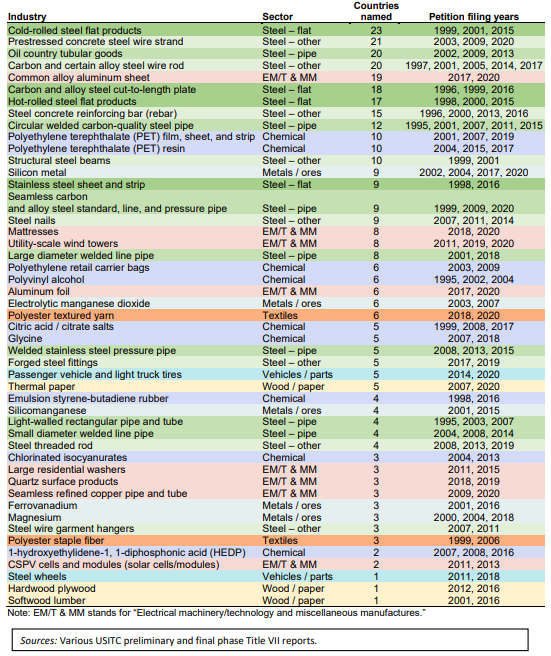Government/Policy
December 1, 2023
Steel dominates repeat trade case filings: Report
Written by Laura Miller
Steel dominated the industries seeking repeated relief from unfair trade between 1995 and 2020, according to a new report compiled for the International Trade Commission (ITC).
The author of the report, Craig Thomsen, a supervisory international trade analyst at the ITC, termed these “boomerang” petitions or filings. That is when industries seek import injury relief multiple times.
Thomsen’s report showed 48 boomerang industries filed antidumping and/or countervailing petitions (AD/CVD) on more than one occasion in the 25-year period.
During that period, 19 steel-product producing industries sought relief in multiple AD/CVD petitions. Breaking those down further, four were for flat-rolled products, seven were for pipe and tube products, and eight were for other steel products.
Steel trade cases generally had the greatest number of countries named in their boomerang filings, the report said.
The table below shows the boomerang industries and sectors identified in Thomsen’s report, as well as the number of countries named and the years of the filings. Steel cases are highlighted in green.
The full report can be found on the ITC website.








